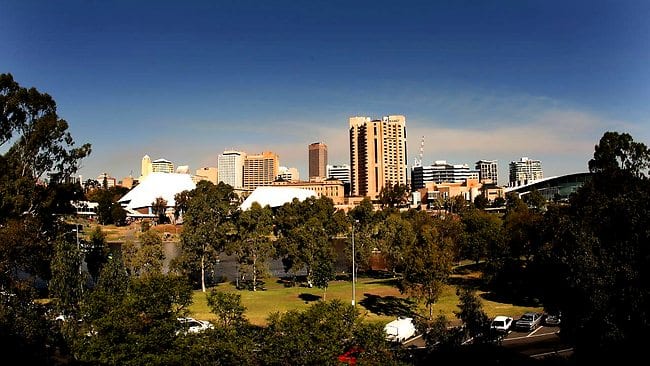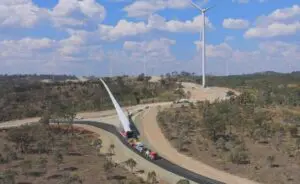“It has been extraordinary,” says Adelaide Lord Mayor Martin Haese, after a six day visit to Paris, where more than 1,000 mayors from across the world have gathered in events coinciding with the UN climate conference.
The United Nations, and hosts France, recognised that with around three-quarters of the world’s population living in towns and cities, the actions of local government are going to be key in the efforts to limit global warming to well below 2°C, or the new 1.5°C target that was finally adopted.
 Those 1,000 mayors pledged to take their towns and cities to 100 per cent renewables, or carbon neutral. But Adelaide intends to get their quicker than anyone else. Less than a month ago, Adelaide council voted to introduce a plan to go “carbon neutral” by 2025. If it succeeds, it will be the first major city in the world to do so.
Those 1,000 mayors pledged to take their towns and cities to 100 per cent renewables, or carbon neutral. But Adelaide intends to get their quicker than anyone else. Less than a month ago, Adelaide council voted to introduce a plan to go “carbon neutral” by 2025. If it succeeds, it will be the first major city in the world to do so.
Haese says that Adelaide’s ambitious goal ranks among a few cities – he cited Vancouver and the city of Bristol in the UK – as leaders in this area.
“I don’t think I recognised the gravitas that Adelaide has on the world space,” Haese told RenewEconomy in an interview in Paris.
Adelaide’s plan will mean major reductions in emissions in its energy supply, transport, and buildings. That means more rooftop solar, more battery storage, more electric vehicles, more LED lighting, and more efficient heating and cooling.
The city can already build upon South Australia’s remarkable share of renewable energy – 41 per cent wind and solar, likely to rise above 50 per cent next year – and its high penetration of rooftop solar (28 per cent of homes).
Adelaide has sought to boost that by introducing a scheme that encourages residents and business people to install battery storage, and make their homes and offices more self sufficient.
The response, Haese says, has been galvanising.
“There is a lot of interest in battery storage. This (scheme) has been an incredible catalyst for the industry.
“Our grants won’t, in themselves, take the city to carbon neutrality, but they are designed to provide an incentive and to get industry into the game.
“We found that, within in a few short months, we have got everyone asking about battery storage, and entrepreneurs asking how to satisfy demand. There are a couple of companies who are already rising to meet that demand.”
Indeed, Haese says that the Carbon Neutral plan has many objectives. One is economic. The city is in transition and it hopes, like the state government with its zero emissions target for 2050, to be a centre of investment.
Haese says he expects to be able to announce, soon, the arrival of several international clean technology companies that will use Adelaide as a base. (Here full interview below).
The second issue is livability. Adelaide, he says, ranks number five in the world and he says that being carbon neutral, and all that entails, could propel it to being number one. He says it will likely add to its interest as a tourist destination.
In Paris, Haese and his team were particularly interested in how other cities are providing positive incentives to adopt electric vehicles. Norway, for instance, offers free tolls, free parking, access to bus lanes and lower registration costs.
“This program will put Adelaide on the world stage. It is a social opportunity, an economic opportunity and an environmental opportunity.
“It will translate into a lower cost of doing business. And maybe it becomes an investment strategy.”










